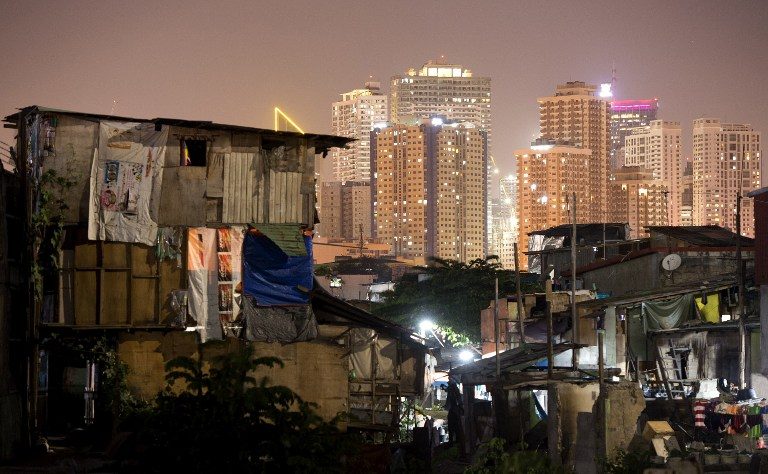SUMMARY
This is AI generated summarization, which may have errors. For context, always refer to the full article.

MANILA, Philippines – The Manila city government has signed an agreement with a Chinese real estate developer on a mass housing project for 7,000 families living along creeks or esteros.
Former president now Manila Mayor Joseph Estrada signed the Memorandum of Understanding (MOU) with the Shanghai Nanjiang Group, represented by its Executive Vice President, Wang Xiaogang, on Wednesday, May 10.
Manila is considering reclaiming a portion of Manila Bay for the relocation project, the local government said in a press statement.
Estrada has already informed the Philippine Reclamation Authority (PRA) about the city government’s project with the Shanghai Group.
If the PRA rejects the proposed reclamation, Wang said that his company is considering building medium-rise buildings “to accommodate as many [informal settlers] as possible.”
Under the first phase of the agreement, the Chinese firm will conduct a 6-month study on the urban housing situation in Manila, to gauge the capacity and quality of the land it plans to build on.
The Manila city government said the Shanghai-based firm will commit to put up low-cost housing projects depending on the feasibility study.
Manila has about 7,000 informal settler families living in “danger zones” such as esteros or creeks, and other waterways, according to the city’s Urban Settlements Office (USO) chief, Danny Isiderio.
In the National Capital Region, the Metropolitan Manila Development Authority (MMDA) recorded hundreds of thousands of families living in areas surrounding the 10 creeks in Metro Manila where pollution and risk of flooding continue to worsen.
Relocation projects have been difficult because of the lack of temporary housing prior to relocation, and often violent demolition operations. (READ: Public hanging: Manila’s homeless and the Philippines’ dirty linen)
To address this, the city government told the Chinese developer that the priority is for “in-city” relocation; there will be demolition if a relocation site has not been identified yet; and the relocation site should be close to the source of livelihood of the families.
Estrada vouched for the Shanghai Group’s “technical capability and experience in real estate.”
“As you know, the City of Manila no longer has enough land where we could relocate our informal settlers but through Shanghai Nanjiang’s expertise, they may be able to recommend doable options to address this problem effectively,” he said.
The company has signed similar agreements with the cities of Makati, Parañaque, and Caloocan. It has developed residential communities, private resort-luxury villas, and hotel-serviced community complexes in China and other countries like Mongolia, Tibet, Mexico, Africa, and Australia. – Rappler.com
Add a comment
How does this make you feel?
There are no comments yet. Add your comment to start the conversation.